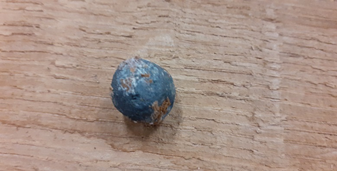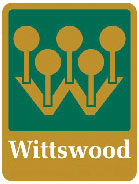As well as sourcing beautiful cuts of oak from the Ardennes in Northern France we occasionally find bullets lodged in the wood from various decades/centuries ago.
All our wood is checked before going through the manufacturing process as metal items lodged in the wood can cause considerable damage to the cutting blades.
The first bullet I shall comment upon was found in August 2020. We believe it was from an Enfield gun dating back to the Napoleonic War (1803 – 1815).

The second bullet was a lead ball from a musket gun dating, we believe, from between 1717-1840.
“Musket balls are the type of projectiles that are fired from muskets. Before they were loaded down the muzzle, they were usually wrapped in paper or cloth, to keep excess gas behind the barrel. Musket balls were made by pouring molten lead into a musket ball mould and trimming off surplus lead once it had cooled. The lead musket balls expanded upon entering a body, often causing a large exit wound.
If the musket ball was not wrapped in the linen patch, it could bounce from side to side inside the musket barrel and would leave the barrel in an unpredictable direction. This is one of the reasons why muskets were inaccurate. Musket balls where generally anywhere from .30-.75 calibre, but some exceeded these guidelines. The musket ball was loaded into the smooth bore by first pouring a powder charge down the barrel, wrapping a linen patch around the ball, starting it off with a short ramrod of ‘starter’ then using the longer ramrod (usually seated underneath the barrel) to push it all the way down the barrel. After tapping the ball a few times to check that it was seated firmly on top of the powder charge the ramrod was withdrawn. Musket balls are often confused with balls for muzzle loading pistols, as some pistols were of a larger bore than some muskets”.

Obviously we are not experts in musket balls and bullets and if anyone can offer any insight into the history we would love to hear from you!


